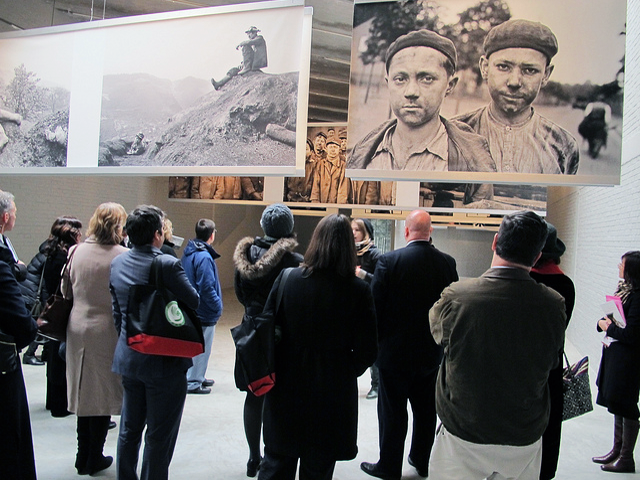Find the Familiar in the Foreign

by Jeff Wang
I recently returned from a short visit to Beijing with American school leaders. The group visited schools and met with their Chinese counterparts. They also met with Americans and other foreigners who are studying or working in China. Among the people they met were Jamil Anderlini, the Beijing Bureau Chief for the Financial Times, and Josh Stephens, China Marketing Manager for Zynga, best known for it’s popular game Angry Birds.
“What was the greatest difference and biggest cultural shock while living and working in China?” asked the school leaders.
Anderlini and Stephens gave the same simple, but sincere answer: “Not much.”
We often prepare our students for so-called culture shock, but in a certain sense, we are also training them to spot and perhaps focus too much on the differences. Anderlini and Stephens’ response suggests that the differences are rare at the most profound level. Even if great distances separate societies, we’re connected in a globalized age and by citizens who increasingly share similar aspirations for a better future.
How do we, as educators, help students have experiences that celebrate their shared thinking and experiences, particularly during very short study trips?
When a young person leaves his or her comfort zone to go to a foreign country, there are two levels of emotion: One is a kind of immediate excitement and another is a sense of personal connection and self-reflection, which takes longer to develop but also has longer-term impact and greater potential to transfer to other aspect of the student’s life.
Sure, travelers get a kick out of novel things. The ubiquitous Mao portraits, and their many spin-offs, like the Obamao t-shirt phenomenon (Google it), is one example. These things will naturally dissipate; arguably, they grow tedious quickly. The longer-term motivation to connect with students in China, to learn their language, and explore more aspects of Chinese society comes from resonance with what’s already familiar to our students. So why isn’t that a clear objective in most study programs?
Two factors compel students to notice the differences versus things that are familiar.
One comes from the brevity of most exchange visits. Unlike their Chinese counterparts, the majority of whom spent years in American schools and universities, most American students in China are there for a relatively short time, say ten days to a couple of weeks; some may stay for a semester.
Another factor often comes from the hosts and the program desigers’ kind-hearted but misdirected effort to showcase local traditions and culture. Case in point: Chinese kids today are often outnumberd by their overly attentive parents and grandparents. Many young Chinese probably never touched raw dough or minced meat, but when their American peers show up, they are compelled to hand-make dumplings and spead the false notion that it is what all Chinese people do!
What’s the remedy then? One obvious possibility is to travel more frequently and make each stay longer than the last. That will cost more and require a greater commitment from teachers, administrators, students, and parents alike. While encouraging more American students to spend more time in China is absolutely worthy of investment, we can do more to make existing exchange trips to China more meaningful.
This requires program coordinators to design and implement student activities that don’t overload the cultural stereotypes, but rather compel deeper connections with their peers. For example, help students talk about shared issues, such as college and work aspirations, or the challenges and joys of family relationships. Young people can find many affinities despite different cultural contexts.
These efforts not only enhance the travel experience, they also cultivate longer term motivations to learn more, dig deeper, and perhaps return to China for longer stays, and best yet, to apply their understanding of China to whatever career they choose.
Anderlini and Stephens’ reactions may be interpreted as a result of years of living and working abroad, thus becoming desensitized to the novelties that should surround foreigners in a foreign land. Perhaps so. However, we can glean from his comments that this kind of proficiency in navigating the local social terrain is precisely what we want to see develop in students as they become globally competent and the citizens of an ever-shrinking world.
